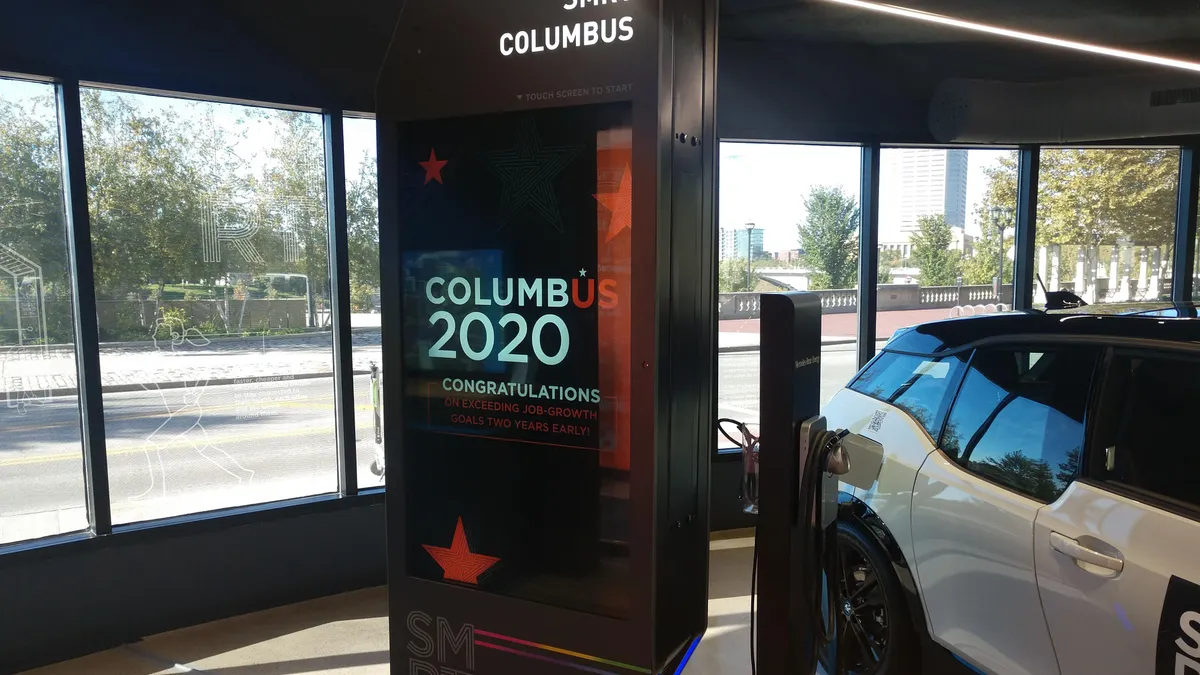Dive Brief:
- Columbus, OH Mayor Andrew Ginther was among the leaders present at the unveiling of the city's first interactive digital kiosk, according to the mayor's Twitter feed.
Today we cut the ribbon on new IKEs (Interactive Kiosk Experience) as part of @SmartCbus. Thanks to @Orange_Barrel for their innovation in connecting residents and visitors in our great city. #Columbus pic.twitter.com/z9QxrFYxBu
— Mayor Andrew Ginther (@MayorGinther) December 19, 2018
- More than 40 of the eight-foot-tall, touchscreen Interactive Kiosk Experience (IKE) units will be installed in the city center next year, reports The Columbus Dispatch. The devices are designed to help with wayfinding and communication, offering users information about public and private entities including stores, restaurants, parks, transportation, local events, city services, shelters and food banks. The IKEs also will provide free Wi-Fi.
- Orange Barrel Media designed the kiosks and installed them for free; the cost is covered by advertisements displayed on the kiosk screens.
Dive Insight:
Cities have only been installing digital kiosks for the last few years but the industry growth was explosive in 2018. Last year LinkNYC won the Smart Cities Dive Award for Infrastructure Advancement of the Year, and this year Intersection expanded its Link kiosks into other cities including Newark, NJ and Philadelphia. This year Orange Barrel Media expanded its IKE presence beyond Denver into San Antonio and now Columbus, with plans for installing the devices in more than a dozen cities next year.
Kiosks are considered a way to bridge the digital divide in cities because they provide free Wi-Fi and information access to anyone who interacts with them. It is, however, up to cities to ensure the devices are installed in areas where they can reach a variety of citizens.
In addition to aiding citizens, kiosks also can benefit cities. Although a variety of business models exist, kiosks tend to generate money through advertising while also collecting data from users who engage with the kiosks.
Kiosk data collection has raised concerns with some people, but as Soofa's Vice President of City Development explained to Smart Cities Dive earlier this month, responsible companies make concerted efforts to ensure security and privacy. For example, the companies can scrub any personally identifiable information and only collect anonymized data.
The kiosks expand Columbus' hard push into the smart cities space. This year it racked up accomplishments such as opening its Smart Columbus Experience Center and unveiling a playbook to help guide other cities on their smart cities journey.












